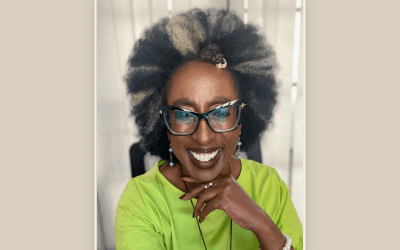Traditional African societies had a unique approach to counselling, with a strong emphasis on community and spiritual beliefs. Counselling was often carried out by elders or other respected members of the community, who used a variety of strategies to help individuals deal with emotional and psychological challenges.
One common aspect of counselling in traditional African societies was the use of storytelling and proverbs to convey important messages and wisdom. These stories often contained valuable lessons and insights that could help individuals navigate difficult situations and understand their emotions better. Storytelling was a powerful medium through which individuals could express their emotions and share their experiences with others. It allowed individuals to make sense of their struggles and find meaning in their lives. In African cultures, storytelling was a communal practice, where individuals gathered around a fire to listen to the wisdom of their elders.
Apart from storytelling, counselling in traditional African societies also involved rituals and ceremonies that were designed to bring about healing and spiritual guidance. These rituals often included the use of music, dance, and other forms of expression to help individuals connect with their inner selves and with the larger community.
Key aspect of counselling in traditional African societies was the importance of community involvement and support. Individuals were not seen as isolated beings, but rather as part of a larger network of relationships and connections. This sense of community was crucial in providing individuals with the emotional support they needed to heal and grow. Counselling in traditional African societies plays a key role in the well-being of individuals within the community. It is crucial for promoting mental health and fostering social cohesion. In these societies, counselling is not just about addressing individual issues, but also about maintaining harmony and balance within the community.
Counselling often involved the use of herbal medicine and other natural remedies to treat emotional and psychological ailments. These remedies were believed to have powerful healing properties and were used alongside other forms of counselling to promote overall well-being. Counselling was a multifaceted process that drew on a variety of techniques and approaches to help individuals navigate life’s challenges. By incorporating storytelling, rituals, community support, and natural remedies, traditional African societies were able to provide holistic care for individuals in need of emotional and psychological support.
Across many African cultures, “counseling” traditionally wasn’t a one-on-one clinical encounter but a communal, holistic process woven into everyday life. Here’s how it typically worked:
-
Elders and Community Leaders as Counselors
-
Role: Village elders, clan heads or respected “wise ones” functioned as the primary advisers. Their life experience and status gave weight to their guidance.
-
Process: Individuals or families brought problems—marital conflict, grief, moral dilemmas—to the elder’s gathering “under the shade of trees or at the meeting hut. The elder would listen, probe with questions, and offer advice grounded in community values.
-
-
Circle Discussions
-
Role: Under a designated tree or communal space, people sat in a circle to air grievances or seek solutions.
-
Process: Everyone, even teenagers, had the right to speak. The group’s collective wisdom—through questions, proverbs, or shared stories—helped the speaker see new perspectives. Decisions or agreed actions emerged by consensus.
-
-
Use of Proverbs, Stories, and Rituals
-
Proverbs: Counsel often came wrapped in metaphor (“When the roots decay, the tree falls”—warning against neglecting family unity).
-
Storytelling: Folktales illustrated moral lessons (the cunning hare, the generous mother, etc.), giving listeners a way to relate their own struggles to timeless themes.
-
Rituals: Healing or initiation rituals—drumming, dance, libations—helped people externalize pain, purify their spirits, and mark transitions (puberty, marriage, mourning).
-
-
Extended Family Involvement
-
Role: Rather than isolating one “client,” the nuclear and extended family participated. A young person with behavioral issues might be counselled alongside parents, aunts, uncles, and grandparents.
-
Process: This both spread responsibility for change and reinforced that no one bears burdens alone.
-
-
Diviners, Herbalists, and Spirit Mediums
-
Role: When problems were seen as spiritual or ancestral in origin—persistent misfortune, mental distress—people consulted traditional healers.
-
Process: Using divination (casting bones, reading cowrie shells) the healer identified spiritual “blocks” or disharmonies. Herbal remedies, cleansing ceremonies, and ancestral appeasement ceremonies then aimed to restore balance.
-
-
Integration of Practical and Moral Guidance
-
Focus: Advice always linked practical steps (e.g., “share your harvest,” “apologize in public”) with moral imperatives (“honor your parents,” “keep promises”). Counseling thus reinforced both personal coping and community cohesion.
-
Key Strengths of the Traditional Model
-
Collective Ownership: Because the whole community was involved, people felt supported rather than pathologized.
-
Holistic Healing: Emotional, social, spiritual, and even physical needs were addressed together.
-
Cultural Relevance: Counsel matched local beliefs, language, and social structures—no “translator” needed.
This holistic viewpoint, which merges spiritual harmony, social cohesion, and moral guidance, acknowledges our shared existence and honors each person as unique while remaining a vital component of the community. By appreciating these lasting customs, we not only protect our legacy but also lay the foundation for a future rooted in collaboration, compassion, and the unwavering belief that when one individual thrives, we all gain from that success. By understanding these roots, modern practitioners can craft culturally attuned counseling that feels authentic and effective for African communities. This perfectly embodies the spirit of UBUNTU!




